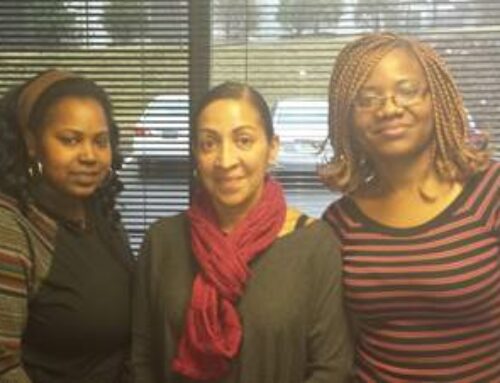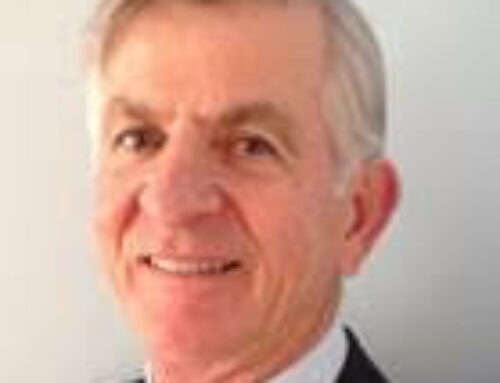Presentation format included statements of three or four minutes from each presenter followed by about 45 minutes of questions. Moderation by Alex Brown was excellent.
Bill Szymanski from URS said he is seeking partners he knows and trusts in the marketing and sale of business. But at the bottom of it, he is not seeking a one-time deal. Instead he is seeking the “wider world” of a strategic partnership where there is teaming for an account, a market, or a customer relationship for the long term. And he wants to build relationships with these partners at the individual and corporate level.
Esther Burgess from Indus said she seeks to have early conversations with subcontractors in which she lays out the approach, solution, and capture plan. She wants to come to a detailed understanding as to what are the schedules, responsibilities, and contributions of all parties. By starting early, this gives her a chance to assess performance of the subcontractors in time to make corrections as necessary. If the subcontractors perform poorly in providing agreed upon effort on the proposal, she will “think carefully before going back to that well”.
Greg Fitzgerald from Information Technology Coalition pointed out the problems experienced by small businesses serving as primes with large business subcontractors on set aside procurements. The small business prime knows its weaknesses and must walk a fine line between overselling its capabilities and telling enough of the truth to strike an honest deal with the large business sub. He said he was hypersensitive to the issue of a small business “not having enough” to bring to the deal. But “it is incumbent on everyone to talk through the deal and come to an open understanding”, even though it is a “tricky situation” to sell the deal.
Question: What does the panel think about the idea of building a network of small business companies vetted in advance to go in a pool? Bill Szymanski said, “The opportunity is won or lost in the Government picking the vehicle. I am saying you have to get partners by customer by deal by industry in advance. And you have to have contingencies and convince the government to select the right vehicle in advance.” If you have to take only 49% of the deal, “your whole investment profile changes”. “The large business and the small business thing is gone. It is just business now.” And you have more contingencies.
Esther Burgess said, “Forty percent of our opportunities ‘get flipped’ in the last two months. The rule of 2 [predominates]”. [If there are 2 small businesses qualified to do the job, then the contracting officer can set the contract aside for small business if he wants.]
Greg Fitzgerald said, we are trying to set everything up for us to be the small business partner when it flips. He continued, “I try to set it up as a small business . . . you know they [Government procurement] like two guys, and it is you and one more, and you have to have the resources in place to do it. We are trying to set our company up to be the small business prime, and there is a lot more of this [happening] now.”
Esther Burgess said, “Pick partners who can react quickly on the proposal”.
Bill Szymanski said, “When partners show up and do a great job [on the proposal], the more value they provide, the greater the share of the job they get. With every transaction they do, they are earning more or less of the work on the next job. I get my door knocked on all the time by small business. On the first deal, you need to do a lot on the bid. Then this may lead to a more strategic conversation. If you do something bad, there are too many other fish.”
Greg Fitzgerald said, “As a small business, you have to be realistic. Let’s say you don’t know the customer and don’t have a solution. But there are 57 IDIQ winners and you can’t get in the door. Filter the stuff and go for the bids that are useful and where you can get work. If you don’t know the customer and don’t have time to develop value, then it is a waste.”
Ester Burgess said, “A small business can do better with an agency IDIQ and not a GWAC. We look for business that ‘are active’ and no that ‘are just waiting’. Businesses that can fill in the matrix in 24 hours, building a pipeline together”.
Question: How can you deal with underperforming primes and subs? Esther Burgess said, “We cry first.” Bill Szymanski said, “You deal with the problem. It is jus another business problem. You treat them like a partner. Stress tests the partnership. You hope that, in the end, you can work it out.” Greg Fitzgerald said, “The small business has an ‘inferiority complex’ with the large business, and you fundamentally need them, so you ‘let it go’ [as much as possible]. Some times you let it play out a little more. Practically speaking, as a small business, you are a little more concerned about being easier to work with than being a problem. [After doing as much as we can when there is a problem] I’ll tell you off line it was a ‘train wreck’.” So you try to carry the deal. Bill Szymanski said, “I have seen small business partners who brought in some great consulting. The best [consultant] recently had client history and real insight.” Ester Burgess said, “Get a commitment early. Lay out the parts and the solution. Get self commitment.”
Question: What if you are the small business prime and the large business sub doesn’t perform on the contract? Greg Fitzgerald said, “You can have letters, and it gets ugly some times. We hope for a relationship high enough in the organization, higher than the program manager, to affect a change. You go overboard to try not to take their work. Some times the situation is not ideal.”
Question: How do you get to know the customer? Bill Szymanski said, “It is harder to walk the halls now. The days when you had unlimited access to walk the halls and button hole anyone you wanted are gone. But you can do program reviews as much as you want and meet the customer in the lunchroom [or wherever else]. And you are developing a performance relationship. You can start to plant the seeds of the next phase. I am going to tell a story because the ‘statute of limitations’ has passed. One time we were invited to join a partner who had close customer insight. [To prove it, he told me] the customer is in the next office. Here I have him on the phone. Do you want to talk to him? I didn’t talk to him, because ‘that would be crossing the line’. We ended up bidding with this partner. But we lost because other groups in the customer organization had different ideas.” Esther Burgess said, “You can get to know the customer as an organization and know their problems – the Small Business Utilization group and go to small business meetings at the contracting office. You have to know what you are good at. There is GovWin and consultants who do this routinely. The small business utilization contact in the IDIQ organization buys for a lot of different customers. But they don’t the customer needs.”
Russell Smith, President, Organizational Communications, Inc. (OCI)





Leave A Comment